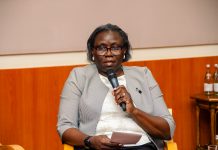By Gift Briton
After decades of being cast as a beneficiary of international research programs, the continent is stepping into scientific leadership, co-authoring solutions to humanity’s biggest challenges, including climate change and health crises.
This shift will be spotlighted on 22nd September 2025 in New York, when the Science for Africa Foundation (SFA Foundation) convenes a high-level session at the Science Summit alongside the 80th United Nations General Assembly (UNGA80).
The session, titled “Africa’s Scientific Leadership: A Catalyst for Global Progress,” will bring together senior government officials, philanthropists, funders, and civil society leaders in person and online. The session will argue that African research should no longer be seen as a support function for global science but as a co-author of the world’s scientific future.
“African science must take centre stage in global decision-making not as a participant but as a co-author of the world’s scientific agenda. From driving solutions in health, food security, and climate resilience to shaping equity in regulation, financing, and talent development, African-led research is a global public good. The world must now recognise this and invest accordingly,” said Dr Tom Kariuki, Chief Executive Officer of the SFA Foundation.
The UN General Assembly is the largest diplomatic stage in the world. Every September, presidents, prime ministers, and ministers meet to set international priorities.
Running in parallel, the Science Summit has become the premier global platform for demonstrating how research and innovation can accelerate the Sustainable Development Goals (SDGs).
By bringing Africa’s message to this stage, the SFA is signalling that Africa’s role in science must shift from a recipient of global research agendas to a co-author and shaper of those agendas.
But leadership requires resources. According to the Organisation for Economic Co-operation and Development (OECD), official development assistance (ODA) to low- and middle-income countries fell again in 2024 and is projected to shrink by 9–17 percent in 2025. ODA remains a major lifeline for research programs in Africa, leaving governments under pressure to close the gap.
At the same time, the United Nations Educational, Scientific and Cultural Organization (UNESCO) reports that global research and development (R&D) spending now exceeds US$1.7 trillion annually, but Africa accounts for less than 1 percent. Only Egypt has reached the African Union’s 1 percent of GDP target for R&D spending, while most nations remain between 0.3 and 0.5 percent. The human resource gap is equally stark: Sub-Saharan Africa has fewer than 100 researchers per million people, compared to several thousand in Europe and East Asia.
For the SFA Foundation, this disparity is about sovereignty as much as money. Without domestic investment, African priorities risk being overshadowed by external agendas. New financing mechanisms, such as sovereign science funds, innovation levies, and blended public-private investments, are being advanced to secure homegrown control.
The consequences are stark. Failure to secure sustainable science financing and fair partnerships could lock Africa out of decisions on climate adaptation, pandemic preparedness, and digital innovation. Success, however, could drive health system reforms, resilient food production, and a surge in innovation-led economic growth.
The SFA Foundation’s session at UNGA80 is therefore more than a side event. It is a bid to end the “catch-up” narrative and to cement Africa’s place at the table where global science priorities are set. As SFA Chief Executive Officer Dr. Tom Kariuki put it recently, “African science must take centre stage in global decision-making not as a participant but as a co-author of the world’s scientific agenda.”





